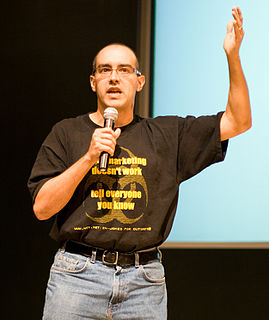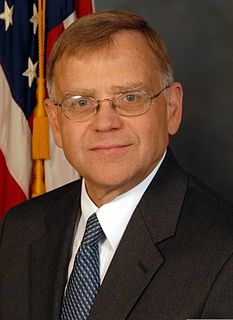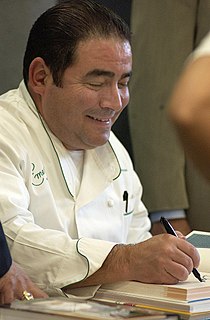A Quote by Bryant Terry
In terms of the contemporary food system we see a lot of racism currently. Obviously we have a large supply of food. A lot of people don't examine why that is the case, but there are a number of nonwhite migrant workers being exploited every day.
Related Quotes
Anybody interested in solving, rather than profiting from, the problems of food production and distribution will see that in the long run the safest food supply is a local food supply, not a supply that is dependent on a global economy. Nations and regions within nations must be left free and should be encouraged to develop the local food economies that best suit local needs and local conditions.
Stated in the simplest terms, the recognized solution to the problem of foodborne illness is a comprehensive prevention strategy that involves all participants in the food system, domestic and foreign, doing their part to minimize the likelihood of harmful contamination. And that is the strategy mandated by FSMA. It is not a strategy that assumes we can achieve a zero-risk food supply, but it is a strategy grounded in the conviction that we can better protect consumers and the economic vigor of the food system if everyone involved implements reasonably available measures to reduce risk.
Remember, one in every five people in America goes hungry and there are certainly a whole lot of folks who are getting three meals a day who do know where their next week's food is coming from who are very sensitive to this issue who would like everybody to be fed. Add to that the number parents who have children in schools who would like their children to be eating healthy, wholesome food and don't want sugary sodas or chocolate milk to be chuggable at any moment of the day by their kids.
Number one, we need to get in shape, number two we need to shoot, number three, we need to learn self-defense, and number four, we need to study small-unit tactics... If you do not have 5,000 rounds of .223, 5,000 rounds of .22 and 1,000 rounds of handgun ammo, as a MINIMUM, you're wrong. We need to train our families how to shoot as well. We need to get food. We need to have a year's supply of food, two years supply of seeds, we need to have a year's supply of sundry items. That's what it means to be an American. We prepare for the worst but hope for the best.
We need to realize that these industrial methods of farming have gotten us used to cheap food. The corollary of cheap food is low wages. What we need to do in an era when the price of food is going up is pay better wages. A living wage is an absolutely integral part of a modern food system, because you can't expect people to eat properly and eat in a sustainable way if you pay them nothing. In fact, it's cheap food that subsidized the exploitation of American workers for a very long time, and that's always been an aim of cheap food.
I think as individuals, people overrate the virtues of local food. Most of the energy consumption in our food system is not caused by transportation. Sometimes local food is more energy efficient. But often it's not. The strongest case for locavorism is to eat less that's flown on planes, and not to worry about boats.








































